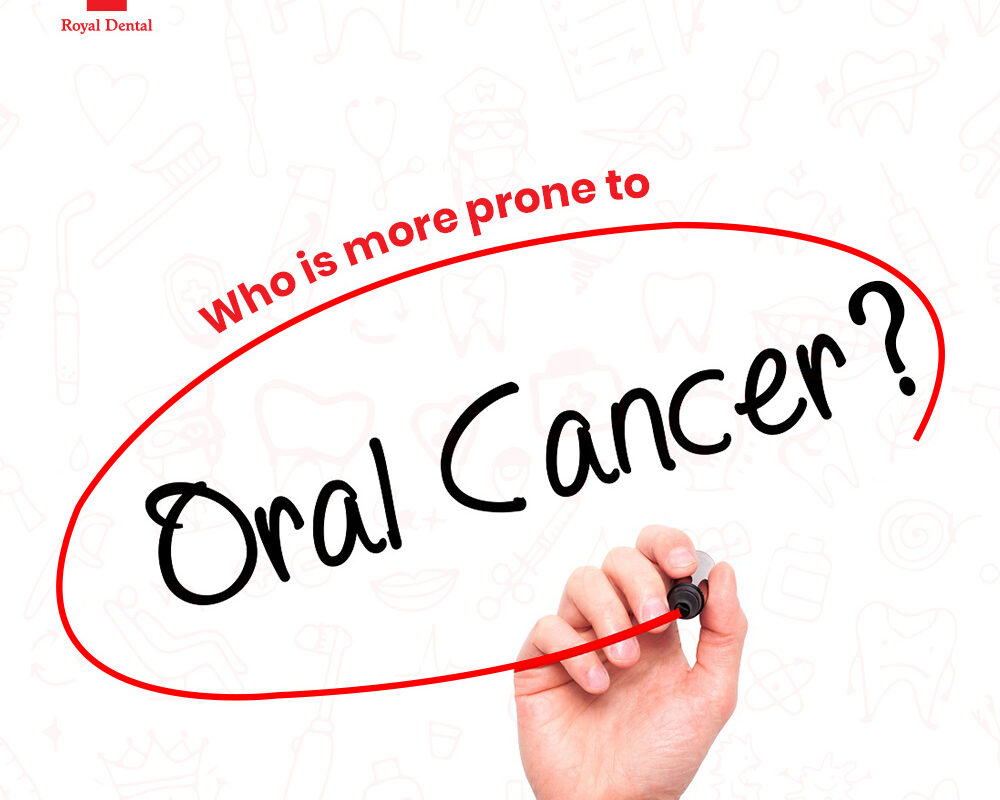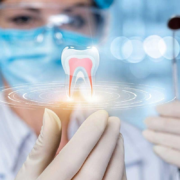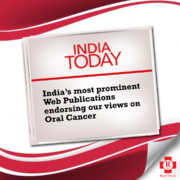Oral cancer screenings are important because they can detect oral cancer in its earliest stages, when it is most treatable. An oral cancer screening takes place during a typical check-up with your dentist or hygienist. It usually involves an inspection of the soft tissues inside your mouth and sometimes the tongue and gums. During this process, your dentist or hygienist will look for any signs of abnormal growths or lesions that could indicate early stages of oral cancer. If you’re at a high risk for developing oral cancer you smoke or chew tobacco regularly—your dentist may suggest taking additional precautions to reduce your risk even further.
While no one likes the idea of getting an uncomfortable exam that feels like you have a string left over from last night’s spaghetti dinner lodged in your cheek, these screening procedures take only a few minutes and can save your life if they discover anything worrisome.
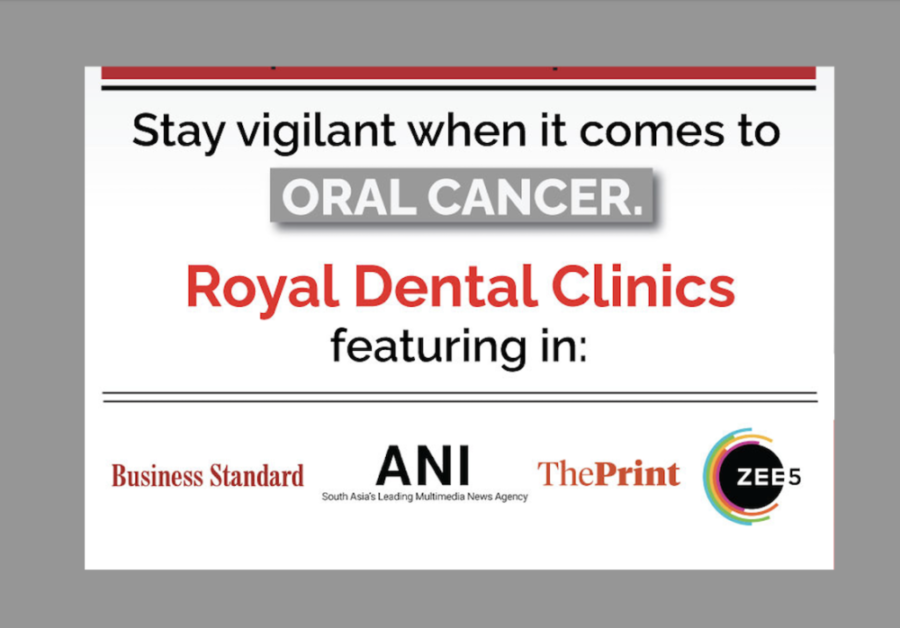
When should I get an Oral Cancer screening?
You should speak to your dentist about scheduling an mouth cancer screening at your next routine dental visit. Oral cancer screenings are usually performed during a routine dental exam, but can also be done during a medically necessary dental visit. If you are at high risk for developing oral cancer, your dentist will likely offer oral cancer screenings as part of your check-ups instead of waiting until your next routine exam. This is because people who are at high risk for mouth cancer due to their lifestyle or medical history.
As per Dr. Chirag Chamria, Oral and Maxillofacial Surgeon at Royal Dental Clinics, “Symptoms include an ulcer that doesn’t heal, a lump or a white or red patch on the inside of the mouth”.
How is an Oral Cancer Screening performed?
When performing an oral cancer screening, your dentist or dental hygienist will use an explorer to look inside the soft tissues of your mouth, including under the tongue and gums. You may feel a bit of pressure or slight discomfort during this procedure, but it shouldn’t be painful. Your dentist or dental hygienist will likely explain what he or she is doing as the exam is happening, so you’ll know what to expect.
Detecting signs of Cancer
If your dentist finds something abnormal during the screening, he or she will likely want to do further testing to determine if the abnormality is a sign of oral cancer. This may include taking a biopsy (removing cells from the area to be examined under a microscope) or using imaging techniques such as a CT scan or MRI to get a better look at the tissues.
What are the risk factors for Oral Cancer?
A few risk factors significantly increase your chances of developing oral cancer, including smoking, alcohol use, and certain medical conditions such as Human Papillomavirus (HPV) infection, type 2 diabetes, and inflammatory bowel disease. People who have low immunity or immunocompromised ( HIV/AIDS organ transplant patients) are also at higher risk of developing oral cancer.
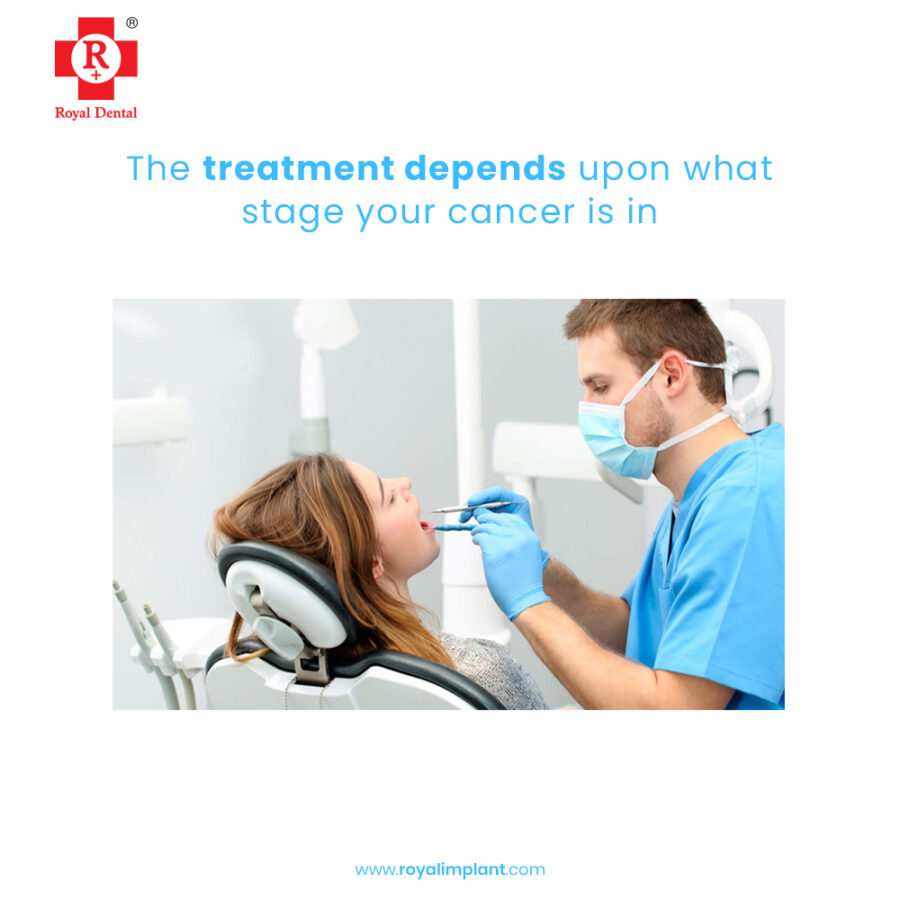
How to reduce risk of developing Cancer
The best way to reduce your risk of developing oral cancer is to quit smoking and avoid alcohol altogether. If you currently smoke cigarettes or chew tobacco, please talk to your dentist about ways to get the help you need to quit. Since the HPV virus is highly associated with oral cancers, having a healthy immune system can help prevent oral cancers related to HPV. This can be done through healthy eating habits, reduced stress, and regular exercise. To prevent developing mouth cancer due to diabetes, work with your doctor to maintain healthy blood sugar level and diet.
Missing Teeth after upper jaw Cancer
Missing teeth affects the esthetics and overall facial appearance of an individual. Therefore, If missing teeth in time, it can cause various problems such as pathological migration of teeth, supra-eruption, speech impairment, chewing ability, malocclusion, decreases the integrity of jaw bone.
This in turn will cause difficulty in maintaining oral hygiene. Speech and phonetics hampered if teeth are not in proper alignment. As you lose more teeth, one will be forced to chew from other areas. Causing overload on certain teeth with excessive wear and tear and tempo mandibular joint dysfunction. In addition, improper chewing leads to poor nutrition thereby affecting overall growth and health of the patient.
Tobacco and Cancer
Tobacco is the most common cause of mouth cancer. This includes chewing or smoking anything that contains tobacco. Cigarette smoking causes the most deadly type of oral cancer known as squamous cell carcinoma. The lining of the mouth is rich with bacteria which produce nicotine. Nicotine irritates the mouth and leads to formation of small amount of cancer cells. However, Cigarette smoking contains harmful chemicals like arsenic, which are carcinogenic and can destroy good cells in the mouth.

Conclusion
Mouth cancer is a serious disease that can be detected early through oral cancer screenings. If detected early, oral cancer can be treated successfully with either surgery or radiation. Getting oral cancer screening is important for everyone, but especially for people who are at high risk developing oral cancer. With the information you’ve read in this article, you should able to navigate the world of cancer screenings more comfortably. Best of all, oral cancer screenings can save your life if they discover any abnormalities that could indicate oral cancer.
Follow Us For More Updates
